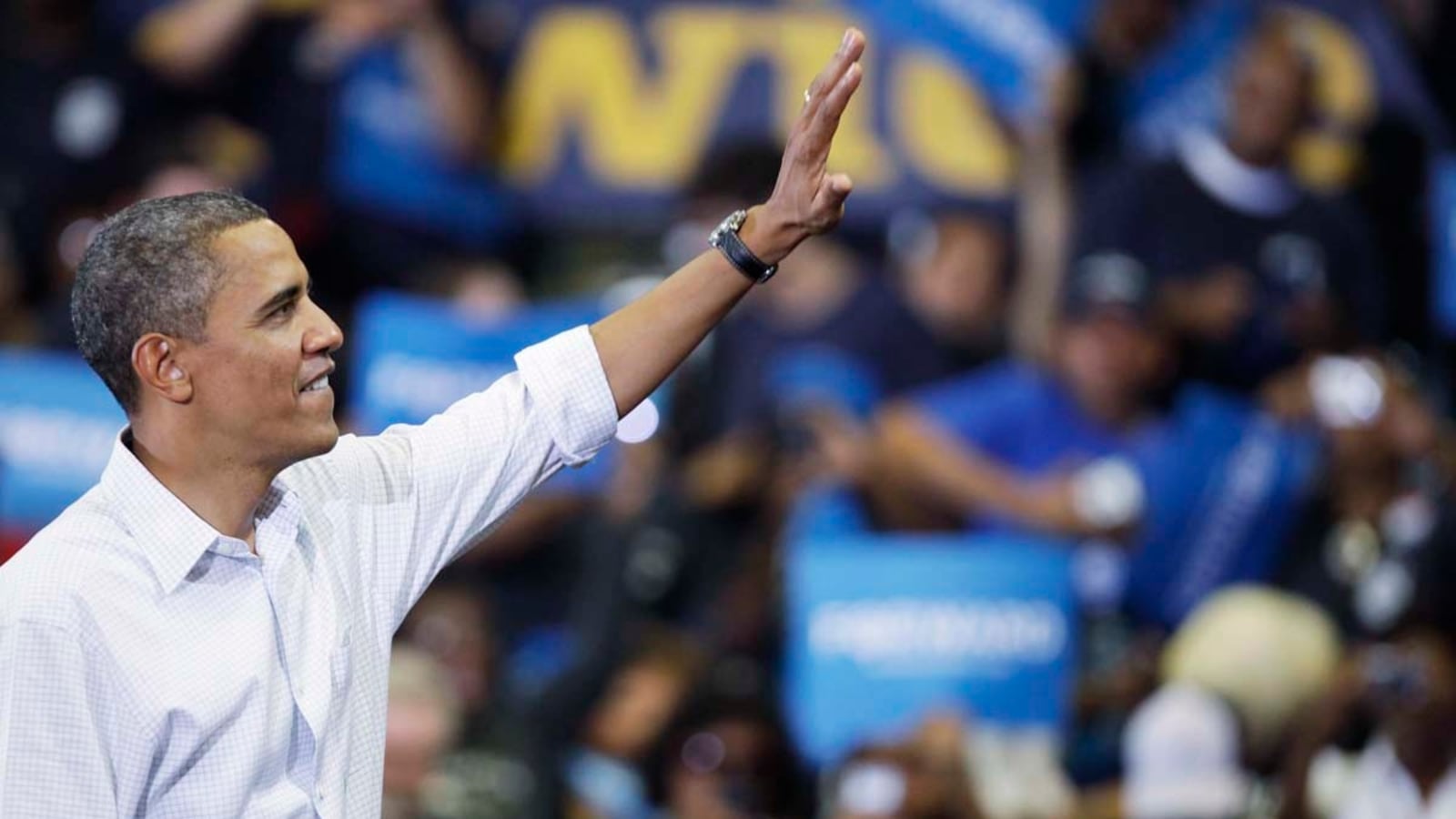President Obama’s blessing is his curse—a soaring speech won’t be good enough Thursday night.

Call it the Obama discount or just a credibility gap, but words are cheap where this POTUS is concerned. That’s why he needs to get serious about policy and set forward a clear, distinct second-term agenda in his nomination speech.
The reason is simple: promising more of the same isn’t enough to get reelected.
Look, everybody understands that the fiscal crisis began before Obama took office. But pivoting from “Hope and Change” to “It Could Have Been Worse” is somewhere between insufficient and sad.
The president needs to diagnose the challenges we face now and propose new solutions—something to look forward to in a second Obama term.
Yes, in the process, he can rebut Republican criticism and explain why their solutions represent the policies that got us into this mess. But contrast must be balanced with an alternative path to achieving common goals, consistent with the national interest, not special interests.
I’m not optimistic on this front. Every time I’ve asked a member of the Obama team to lay out a second-term agenda, from Robert Gibbs to Melody Barnes, I’ve gotten campaign bumper stickers and bromides.
We get that the president wants to defend the great American middle class, but which new policies will he back to accomplish that goal that resonate on a gut-check level? It can’t simply be a rehash of the same old policies, blaming the Republicans for lack of passage, because if Obama wins reelection, we’re likely to see divided government again.
He should detail a balanced bipartisan plan to pay down the deficit and debt—this matters to independents and swing voters. Argue why the stimulus was necessary to begin but say that when stabilization occurs, deficit reduction must be a bipartisan goal. Make the case for why a grand bargain can be achieved in a second term if he’s reelected—it would be bold to offer Bowles-Simpson as a starting point. Mitt Romney notably failed to pick up that policy at his convention.
If education is the cornerstone of the American Dream, will the president pull a Nixon in China and push the teacher’s unions even further to back reforms that open access to quality education and individual initiative?
If moving toward energy independence is a common ground goal, he should announce a comprehensive set of new initiatives help accelerate its achievement—and not just green energy—perhaps a national energy grid. Back the natural gas boom that is taking place.
Another win-win is a public-private infrastructure bank that could help put Americans back to work and strengthen our resilience without bleeding taxpayers.
And if immigration is the key to America’s future success, he should own the successes of securing the border under his watch as well as the DREAM Act and announce that he’ll submit the Bush-McCain-Kennedy comprehensive immigration reform bill for ratification.
There are strategic arguments that could resonate with swing voters about why rewarding Republicans with unified control of Washington again would only compound the current hyper-partisanship. Making the case that the fever could break will win over some undecideds. But there is no question Obama has failed to change the culture in Washington, as promised. So he should campaign on a set of congressional reforms as well, with the backing of Harry Reid and Nancy Pelosi, including filibuster reform, an end to secret holds, and even a five-day congressional work week.
The key to all of this is to take a page from the Clinton playbook and resist the temptation simply to play to the base. Fairness is not a reason to raise taxes—seeking a balanced plan to reboot the economy, invest in the future, and pay down the deficit and debt is. The key is shared sacrifice in the cause of national greatness, not anything that smacks of class warfare. Raising taxes may be necessary, but it is not a rallying point or a reason for reelection.
A look at the polls shows that Obama leads among centrists, and if swing voters have soured on him, they are not yet sold on Romney. The easy, cynical thing to do would be to play defense. But that carries its own risks. Democrats have a way of forgetting that only 20 percent of Americans self-identify as liberals, and the old days of FDR-LBJ landslides occurred with Southern conservatives as a core of their party.
Obama needs to reconnect with centrist and independent swing voters to win reelection. Being a likable guy helps, but they want to hear a concrete plan for a second term that could deliver a measurable dose of the hope and change they once believed in.
The historic nature of the president’s election was satisfied the day he won in 2008. That’s why Romney, Paul Ryan, and the entire Republican convention seemed to acknowledge Obama’s failure with wistfulness rather than anger last week in Tampa. Reason, not emotion, will be essential to making a successful reelection pitch.
The bottom line is that Bill Clinton’s “I Feel Your Pain” formula is not sufficient, even if Obama did possess Clinton’s political empathy. For Obama, and the nation, a specific prescription is necessary.





